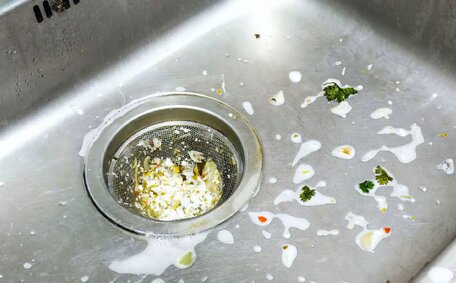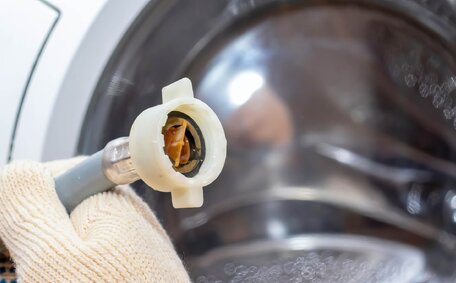Introduction to Gas Cylinder Safety
Having the proper storage setup for gas cylinders is a crucial safety consideration for any home or business. With decades of experience as licenced plumbers, we at Burwood Plumbing understand the importance of following safety guidelines when handling these pressurised vessels.
Gas cylinders, also known as gas bottles, are commonly used for heating, cooking, refrigeration, medical devices, and welding equipment. The most common types found in homes and businesses are propane, acetylene, oxygen, carbon dioxide, and liquefied petroleum gas (LPG) cylinders.
When stored or handled improperly, gas cylinders pose serious risks like fires, explosions, and toxic gas leaks. By following safety recommendations, you can keep your property and loved ones protected.
Store Gas Cylinders Upright and Outdoors
When storing gas cylinders outside, it’s crucial to keep them upright. Laying cylinders on their side can cause valve damage leading to dangerous gas leaks. Standing cylinders upright also allows for easy identification of gas type based on colour-coded shoulder markings.
Outdoor storage is recommended because it maximises ventilation, dispersing any leaked gases. Cylinders should be kept at least 3 metres from combustibles like vehicles or rubbish bins, and at least 1 metre from buildings or walls. This prevents cylinders from igniting fires or explosions.
Storing gas cylinders outdoors in an upright position is a best practise to ensure their contents remain properly pressurised and safe for use. Proper outdoor storage also reduces risks to inhabitants, property, and the cylinders themselves.
In a Secure, Well-Ventilated Area
Proper ventilation is crucial for safe gas cylinder storage. Cylinders should be kept outdoors in an open, well-ventilated area. This allows any leaked gases to dissipate quickly rather than accumulate.
Adequate airflow is key - do not store cylinders in confined, enclosed spaces like cabinets or sheds. vapours can concentrate in a poorly ventilated area and ignite if exposed to a spark or flame.
The storage area should also offer good drainage. This prevents water from accumulating near cylinders and potentially corroding valves. Any leaked gases will also drain away safely.
Make sure the area is clear of rubbish, long grass, leaves and other flammable materials. Cylinders should not be near sources of heat, flames or electrical sparks.
It’s also vital to secure cylinders against tampering and damage. Use chains, sturdy brackets or cages firmly fixed to a wall or ground. Restrict access to authorised personnel only.
Following these precautions keeps your gas cylinders stored securely in a well-ventilated spot. This maintains cylinder integrity and ensures the safety of people, property and equipment.
Away from Heat Sources, Flames, and Electrical Equipment
It is crucial to store gas cylinders away from any heat sources, open flames, or electrical equipment. The gases inside cylinders are flammable and explosive, so keeping them away from potential ignition sources reduces the chance of fires or explosions.
Specifically, cylinders should be kept at least 5 metres from things like furnaces, heaters, grills, pilot lights, candles, lighters, matches, and smoking areas. Electrical sparks can also ignite leaked gases, so keep cylinders away from outlets, switches, and machinery with electric motors.
Storing gas cylinders a safe distance from any flames or electrical sources minimises the risk of the contents igniting accidentally. This prevents dangerous fires or explosions that could damage property, injure people, and even be fatal in some cases. Following this simple precaution keeps everyone safer.
Use Proper Restraints to Prevent Falls
With gas cylinders standing upright, it’s vital to implement proper restraints to keep them stable and prevent falls. As licenced plumbers, we recommend using chains, straps, or purpose-built wall brackets firmly secured to the ground or structure.
Weight is a factor, so large cylinders will need robust restraints - generally wall-mounted brackets for single cylinders, and chains or straps for multiple cylinders in banks. Smaller cylinders can use adjustable straps or chains anchored to the floor or wall.
The restraint should secure the cylinder just below its top third for optimal stability. Check that it cannot tip or fall if nudged accidentally. Proper restraints are crucial to avoid cracked valves, leaks, and injury due to falling cylinders.
Chain Cylinders in Place
Chaining cylinders properly prevents them from falling over, which can lead to cracked valves, leaks, injuries, and other dangerous situations. Here are some tips for safely chaining cylinders:
- Use high-quality chains of appropriate strength and length to secure each cylinder. Long chains allow movement while short chains prevent falls.
- Wrap chains completely around cylinders about 1/3 down from the top. This provides optimal balance and stability.
- Connect the ends with tight chain links, not padlocks. Padlocks can rust or malfunction.
- Make sure cylinders can’t tip over if bumped or nudged accidentally. Check restraints periodically.
- Avoid loose, sagging chains that allow too much cylinder movement and increase tripping risks.
- Don’t intertwine or knot multiple cylinder chains - this limits access in an emergency.
Taking the time to properly chain cylinders prevents a lot of accidents. It keeps everyone around gas storage safer while still allowing easy cylinder access and movement.
Use Sturdy Racks or Cages for Storage
Investing in sturdy racks or cages provides a secure way to store multiple cylinders together safely. Proper storage racks have designated slots to hold cylinders upright and chains to prevent falls. The open, ventilated design also allows leaked gases to disperse quickly.
Look for heavy-duty steel racks bolted to the floor or wall.
Check that cylinders fit snugly without excess movement. Chain each cylinder separately to the rack for stability. Chain each cylinder separately to the rack for stability.
Alternatively, welded steel cages enclose cylinders more securely. Alternatively, welded steel cages enclose cylinders more securely. Ensure the cage is outdoors and ventilated.
Use individual restraints to hold cylinders upright and prevent collisions during transport.
Racks or cages both limit cylinder movement and provide impact protection. Investing in proper storage equipment keeps your cylinders organised, stable and secured against leaks, falls or tampering. Ultimately, this equipment gives peace of mind that your gas cylinder storage setup meets safety best practises.
Segregate and Label Full and Empty Cylinders
It is essential safety practise to segregate and label full and empty cylinders. Keeping them separate allows for quick identification of gas contents and quantity. This prevents potential mishaps of connecting to an empty cylinder when fuel is required.
Label empty cylinders clearly as 'MT’ or 'Empty’ using signs or paint. Full cylinders should display the gas type and quantity remaining. Position full cylinders together but segregated by fuel type.
Group empties together for prompt removal.
Segregating full from empty cylinders contributes to safe storage. Empty cylinders are kept isolated to avoid confusion. Segregating full from empty cylinders contributes to safe storage.
Workers can locate the required gas easily.
Following this simple system reduces errors when exchanging cylinders in equipment. Separating and labelling cylinders also makes inspections more efficient. Check that storage separation and labelling protocols are followed strictly at all times.
Regularly Inspect Cylinders for Damage and Expiry
Regularly inspecting gas cylinders helps avoid potentially dangerous accidents or malfunctions. As fully licenced plumbers, we recommend visually checking stored cylinders monthly, and more frequently with high usage.
Look for signs of corrosion, dents, bulges or physical damage that could weaken the cylinder structure. Check that valves are not leaking, increasingly difficult to operate, or show signs of damage.
Use a soapy water solution to test for smaller leaks. Watch for dirt buildup around valves and other openings that could indicate leaks.
Also check expiry dates and have out-of-date cylinders inspected and re-certified. While visual inspections are ongoing, have all cylinders undergo proper maintenance checks periodically as per the manufacturer’s guidelines.
Being diligent and regularly inspecting cylinders keeps storage operations safe. Inspections are essential for meeting health and safety obligations as a standard procedure.
Minor issues can be addressed before they escalate. Expired or damaged cylinders can be replaced.
Check Test Dates and Condition
It’s crucial to routinely check the test date and condition of your gas cylinders. In Australia, cylinders must be tested and stamped every 10 years under law.
Examine the date stamp on the cylinder collar or footring. Outdated cylinders beyond the test date must be removed from service immediately. Contact the gas supplier to arrange inspection and requalification of expired cylinders before further use.
Also check the general condition of cylinders, even if test dates are current. Look for any dents, bulges, cracks, leaks, corrosion, damage, or evidence of overheating or fire exposure. Badly damaged or corroded cylinders should not be used and may need replacing.
Staying on top of test dates and condition ensures cylinders remain safe and compliant for use. Do not take shortcuts - using untested or damaged cylinders puts lives and property at serious risk of explosion or toxic leaks.
Use Proper Signage to Identify Cylinder Contents
Correctly labelling gas cylinders is a vital safety measure. Sturdy, weatherproof signage should identify the specific gas contained in each cylinder or bank. This allows personnel to verify cylinder contents at a glance before connecting equipment.
Signage helps prevent dangerous mix-ups when personnel require a certain gas. Clear markings also assist emergency responders in an incident. Use large block letters with the proper gas name, formula, and hazards clearly displayed.
Position signage prominently near the top of each cylinder so it’s visible while upright. You can also colour code signage by gas type. Ensure markings remain intact and update if signage fades or sustains damage.
Maintaining proper cylinder signage ensures the contents are clear to all personnel accessing the storage area. This prevents accidental use of the wrong gas. Proper identification literally saves lives by avoiding potentially fatal errors.
Conclusion
Storing gas cylinders properly is crucial for protecting health and safety. This article covers several key recommendations:
- Keep cylinders upright and chained securely outdoors in a well-ventilated area, away from heat, flames and electrical sources.
- Use sturdy racks, cages or restraints designed for gas cylinders to prevent falls.
- Separate and label full and empty cylinders for easy identification of contents.
- Inspect cylinders regularly for damage, leaks or expired test dates and remove from service if necessary.
- Ensure proper signage clearly identifies the gas type in each cylinder or bank.
Following these safety guidelines for gas cylinder storage protects your family, employees, property and business from dangerous accidents. If you ever need advice or help with gas cylinder handling, storage or plumbing, please don’t hesitate to contact our team of licenced professionals at Burwood Plumbing. We’re always happy to help keep you safe.






